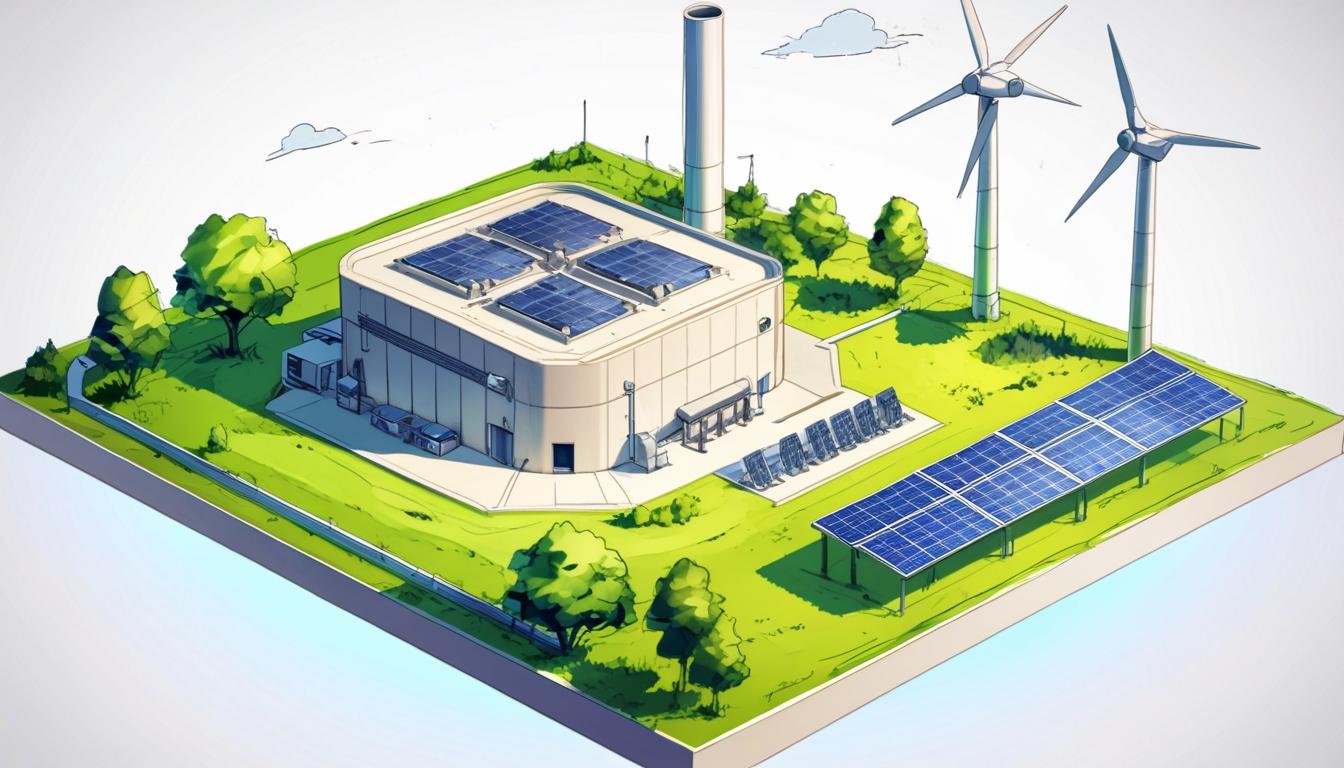The rapid expansion of artificial intelligence (AI) technologies is significantly increasing demand for energy-intensive data centres, prompting a surge in activity among climate tech startups focused on providing cleaner energy solutions. As major technology companies like Amazon and Microsoft intensify their investments in AI infrastructure, there is growing pressure to balance the increased energy consumption with efforts to reduce carbon emissions.
Data centres currently consume between 1% and 2% of global electricity, with projections from Goldman Sachs Research estimating this figure will rise to between 3% and 4% by the end of the decade. This surge in consumption has created a burgeoning market opportunity for startups developing technologies aimed at making data centre energy use more sustainable.
Luca Mezossy-Dona, CEO of Ionate, a London-based hardware startup working on detecting disturbances in power grids, commented on the market dynamics, stating, "We're definitely feeling a lot of market pull because of the AI boom.” This reflects the increased demand for technologies that can support the expansion of AI operations while addressing the challenges to existing power infrastructures.
Connecting data centres to electrical grids presents obstacles, as Pippa Gawley, a partner at the climate investment group Zero Carbon Capital, explained to Business Insider. She noted that in some regions, establishing grid connections for data centres may take between two to five years. In the interim, ensuring uninterrupted power supply is a critical concern for operators. Additionally, the increased power draw from data centres can strain local networks; for instance, Elon Musk's AI startup, xAI, has requested 300 megawatts of grid power for a supercomputer based in Memphis, Tennessee, receiving approval for 150 megawatts.
Interest is also growing in more reliable and decentralised energy sources such as nuclear power, clean hydrogen, and advanced energy storage solutions. Matthew Nordan, general partner at Azolla Ventures, highlighted the rising demand for data-centre-related startups, including Scalvy, which manufactures modular power electronics designed to reduce energy losses, and Zanskar, which applies AI to enhance geothermal power success rates. Geothermal energy, in particular, is seen as a potentially vital component in meeting the high power demands of AI data centres.
The support of large technology companies is proving pivotal for hardware energy startups, which often face capital-intensive development cycles. Harry Morgan, principal at 7percent Ventures, observed that startups benefit from Big Tech firms' commitments to clean energy, with companies like Microsoft and Amazon exploring emerging technologies such as small modular nuclear reactors to accelerate energy project delivery. Morgan noted, "We're seeing applications like robotics for solar plant manufacturers and the integration of batteries for next-generation assets," indicating a focus on speeding project construction and deployment rather than solely on energy generation.
Despite the recent slowdown in climate startup funding—down from $20 billion in the first quarter of 2024 to $10 billion in the same period of 2025 according to Pitchbook data—the AI-driven demand for data centre energy solutions is creating new revenue opportunities.
The environmental implications of supporting a sector with a significant carbon footprint remain a consideration for climate-focused innovators. However, some industry leaders argue that increased renewable energy use within data centres can drive broader climate benefits by making renewables more competitive and widely deployed. As Harry Morgan put it, “The broader impact of data centres could be really positive from a climate perspective.”
Matthew Nordan also emphasised the non-exclusive nature of serving AI data centres and advancing climate goals, saying, “I don’t see an inherent tradeoff in this for climate tech startups. When you’re only good at lowering the embodied emissions of cement or converting voltage with lower losses, it’s impactful whether you’re doing that in a data centre or some more prosaic environment.”
Nonetheless, climate tech leaders recognise that securing sustained business funding is critical amid fluctuating investment landscapes. Nordan remarked, “The first job of any CEO is to capitalise the business, and the tide may be going out in this category for a while... So any leader worth her salt is going to be figuring out how to use data centres as an entry market and cost-down for others as they scale.”
As data centres continue to increase their energy consumption, innovations aimed at improving efficiency and integrating cleaner energy sources are seen as vital to addressing the sector’s growing power demands. Gliobal attention remains focused on how the AI boom will shape energy infrastructure and sustainability efforts in the coming years.
Source: Noah Wire Services
